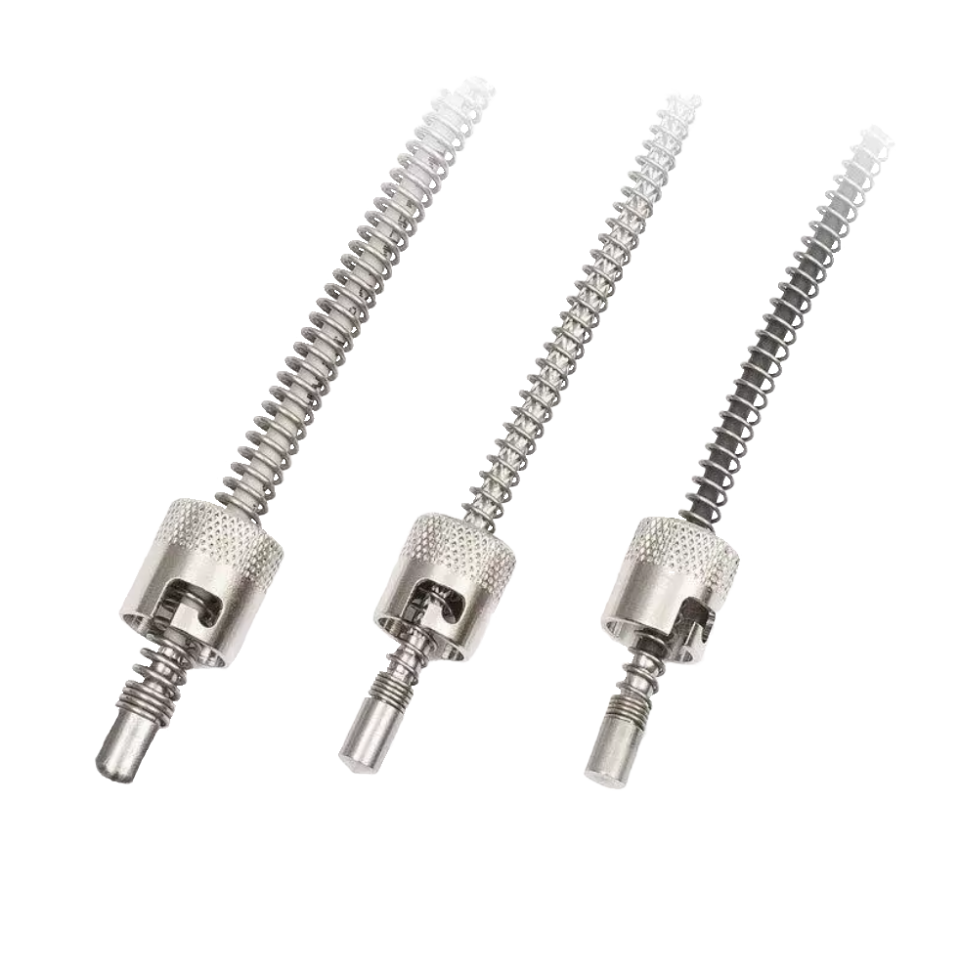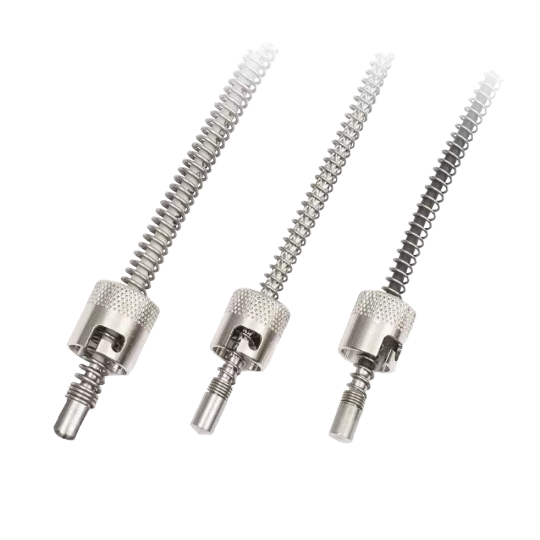
Product features Bayonet probe, 6mm, -50 to 400 ° C
Description and application
All of this resistance sensors are primarily designed to measure the temperature of solid substances, but can also be used to measure the temperature of liquids or gaseous substances. To mount the sensor on the measuring point, use a bayonet nut screwed on a spring.
La combination of bayonet nut, spring and bayonet connector matching can provide a higher contact pressure from the sensor to the measuring point or compensate for possible changes in the distance between the nut and the measuring point during the measurement.
The maximum temperature range of the sensors is between - 50 and 350°C (400°C short term). The range of individual design variations is narrowed down to the type of temperature sensing element and power cable. The sensors respect the level of protection IP50 to IP67 according to EN 60529, depending on the type of input cable.
Use Case
GUILCOR thermometers with bayonet locking are fitted with one or more Pt100 sensors (other sensitive elements on request), which are installed in a protective stainless steel sleeve with anti-torsion spring. The bayonet cap, which can be adjusted with the spring, ensures high operational reliability in temperature measurement thanks to the locking cap of the bayonet cap with the screw nipple.
In the case of mechanical vibrations or temperature-induced expansions, the defined contact pressure ensures good thermal coupling. In addition, it is possible to rotate the bayonet cap on the spring and thus adjust the depth of immersion of the sensor in a bore or the preload of the spring according to their own requirements.
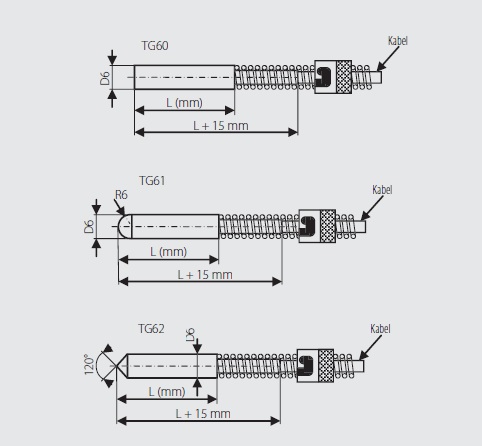
Principle of construction / operation
The measuring resistor is installed in an insulated VA sleeve with a permanently connected connection line. The tension spring is mounted on the sleeve with the adjustable bayonet cap, which is used to set the desired polarization.
| Sensor type | G05.01 | ||
| End of the case | straight ahead | half sphere R6 | summit 120 ° |
| Sensitive element type | All types (Pt 100, Pt 1000, Ni 1000, Ni 10000, Ni 2226 = T1, NTC, PTC, KTY, TSiC, DALLAS, K thermocouple, J thermocouple, T thermocouple, etc.) |
||
| Housing | DIN 1.4301 stainless steel | ||
| Case diameter | 6 mm | ||
| Case length L |
10 to 85 mm (with addition of 15 mm for fixing the cable) | ||
| Input cable variations / temperature range (may be limited by the type of sensitive element - to be determined in the documentation) |
Shielded PVC -30 to 80 ° C Unshielded PVC -40 to 105 ° C shielded with silicone -50 to 200 ° C Teflon shielded -50 to 250 ° C with fiberglass 0 to 400 ° C (with metallic braid) |
||
| Protection sign | PVC and silicone cables IP 67 cables in IP 64 teflon conforming to standard EN 60529 Fiberglass cables IP 50 |
||
| Material / Size of bayonet nut |
Nickel-plated brass / L = 16 mm, internal diameter 12,8 mm | ||
| Spring material / dimension | DIN 1.4301 stainless steel / L = 200 mm, outside Ø 6 mm, wire Ø 0,7 mm |
||
| Insulation resistance | 200 MΩ at 500 V DC | ||
| Maximum permissible static traction on the input cable |
1 kg | ||
These products can interest you

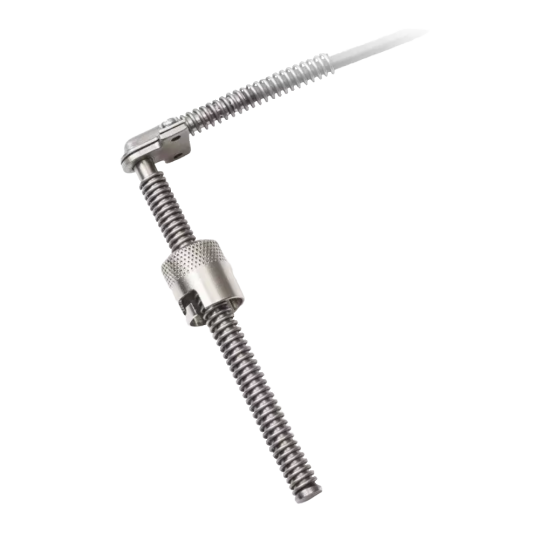
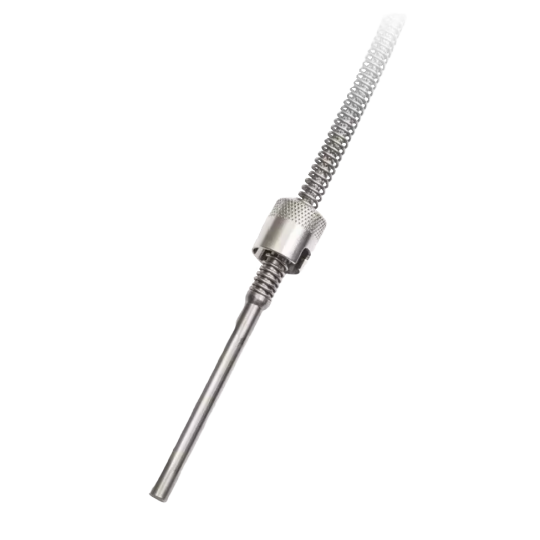
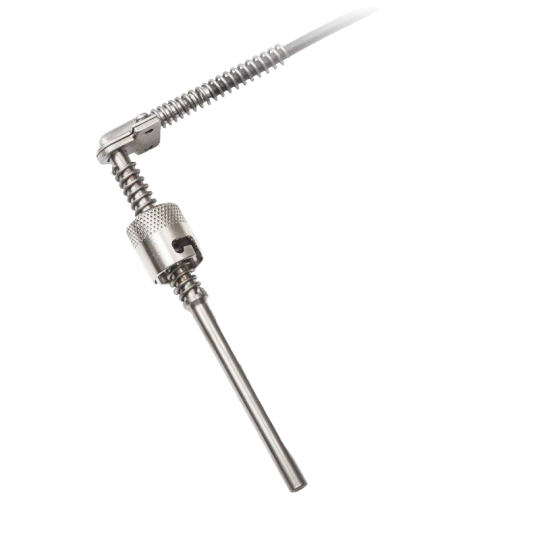
Angled bayonet probe, 5,7mm, -50 to 350 ° C
- 5,7 mm diameter
- -50 to 350 ° C
- Sensor of your choice
- Cubit
